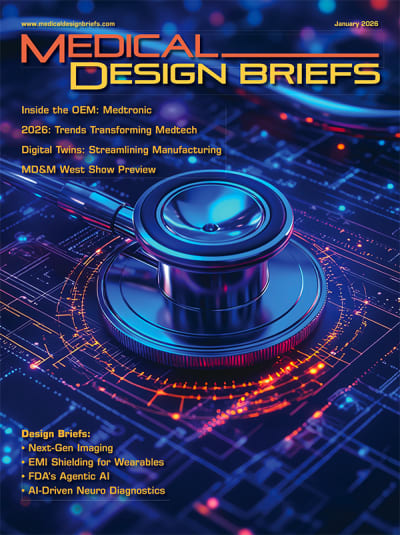
Biomedical engineers have demonstrated a tablet-sized device that can reliably detect multiple COVID-19 antibodies and biomarkers simultaneously. Initial results show the test can distinguish between antibodies produced in response to SARS-CoV-2 and four other coronaviruses with 100 percent accuracy.
The researchers are now working to see whether the easy-to-use, energy-independent, point-of-care device can be used to predict the severity of a COVID-19 infection or a person’s immunity against variants of the virus.
Having also recently shown the same “D4 assay” platform can detect Ebola infections a day earlier than the gold standard polymerase chain reaction (PCR) test, the researchers say the results show how flexible the technology can be to adapt to other current or future diseases.
The technology hinges on a polymer brush coating that acts as a sort of non-stick coating to stop anything but the desired biomarkers from attaching to the test slide when wet. The high effectiveness of this non-stick shield makes the D4 assay incredibly sensitive to even low levels of its targets. The approach allows researchers to print different molecular traps on different areas of the slide to catch multiple biomarkers at once.
The current iteration of the platform also features tiny, patterned tunnels that use the physics of liquids to draw samples through the channels without needing any electricity. With just a drop of blood and a drop of biomolecular lubricant, the test runs autonomously in a matter of minutes and can be read with a detector roughly the size of a very thick iPad.
The D4 assay is read by this battery-powered, tablet-sized scope, allowing the whole thing to be thrown into a backpack and be used at the point-of-care with minimal resources. In the current study, the researchers tested the D4 assay’s ability to detect and quantify antibodies produced against three parts of the COVID-19 virus — a subunit of the spike protein, a binding domain within the spike protein that grabs on to cells, and the nucleocapsid protein that packages the virus’s RNA. The test was able to spot the antibodies in all of the 31 patients tested with severe cases of COVID-19 after two weeks.
The researchers are also working to develop the platform into a test for multiple prognostic markers of COVID-19 that together could indicate whether or not a patient is likely to have a severe case of the disease.



